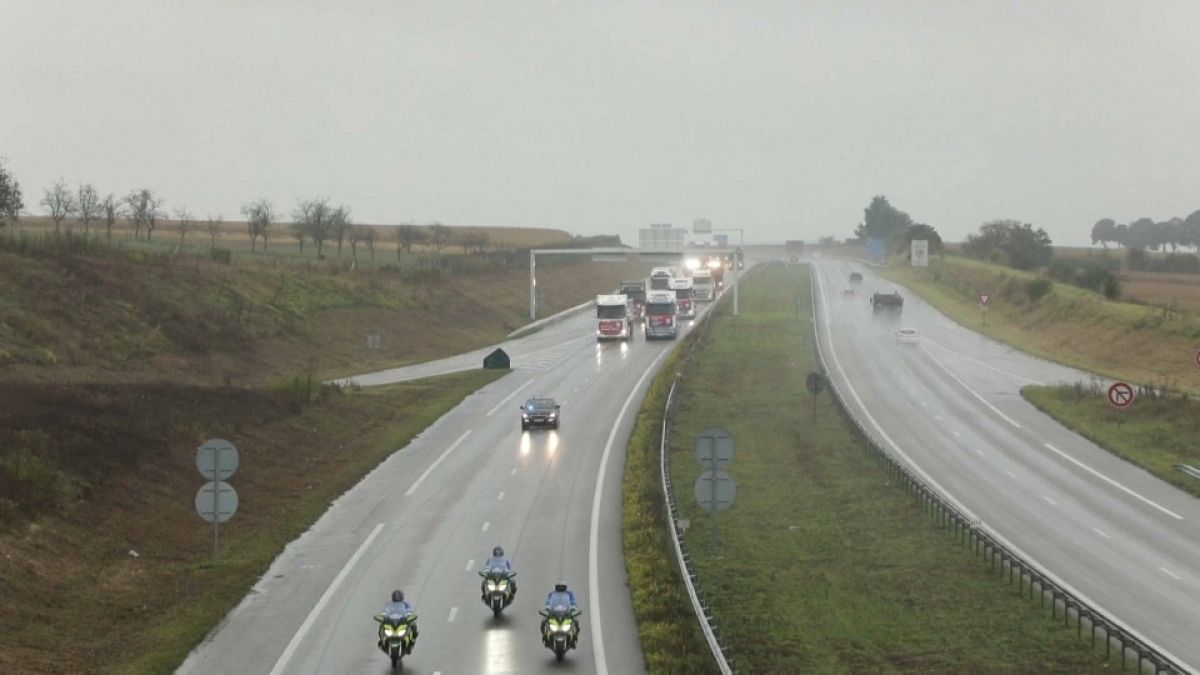The new tax comes at a cost of 15 cents per kilometre for heavy goods lorry drivers.
A procession of slow-moving trucks gridlocked Alsace’s A35 motorway in protest against a proposed new heavy goods vehicles tax.
The new tax, which would be introduced from 2027, will target vehicles weighing more than 3.5 tonnes and aims to reduce transit traffic on the region’s main motorway.
The government says the HGV tax is the only solution to combat the growth in this traffic, which is exacerbated by the many European transit drivers who use the route to bypass the high ecotaxes in place on Germany’s motorways.
“We have no other solution today to curb transit. The lion’s share of the tax will be paid by transit traffic, since over 50% of all traffic is transit,” says Frédéric Bierry, Chairman of the Alsace European Community. He also claims that the new tax would bring in around €64million per year.
However, many of those working in the transit industry say the addition of this tax would threaten the survival of some businesses.
“Our businesses have very low margins, so as soon as a [new] tax is introducer or proposed, we are directly affected because we have no room for manoeuvre,” explains road haulier, Frédéric Reinheimer.
Séverine Richart, from Transports Sateg – FNTR Alsace, adds that “France’s HGV fleet is already less competitive than that of other countries. Adding yet another tax will make us even less competitive.”
Concerns have also been raised by the Collective for the Competitiveness of the Alsatian Economy, which has requested that Bierry postpone the decision by at least six-months.
However, according to Brigitte Kempf, co-president of the Alsace section of the National Federation of Road Transporters, Frédéric Bierry is so far refusing to give in to these requests.
Local councillors are set to vote on the proposal on 21st October.
Read the full article here


